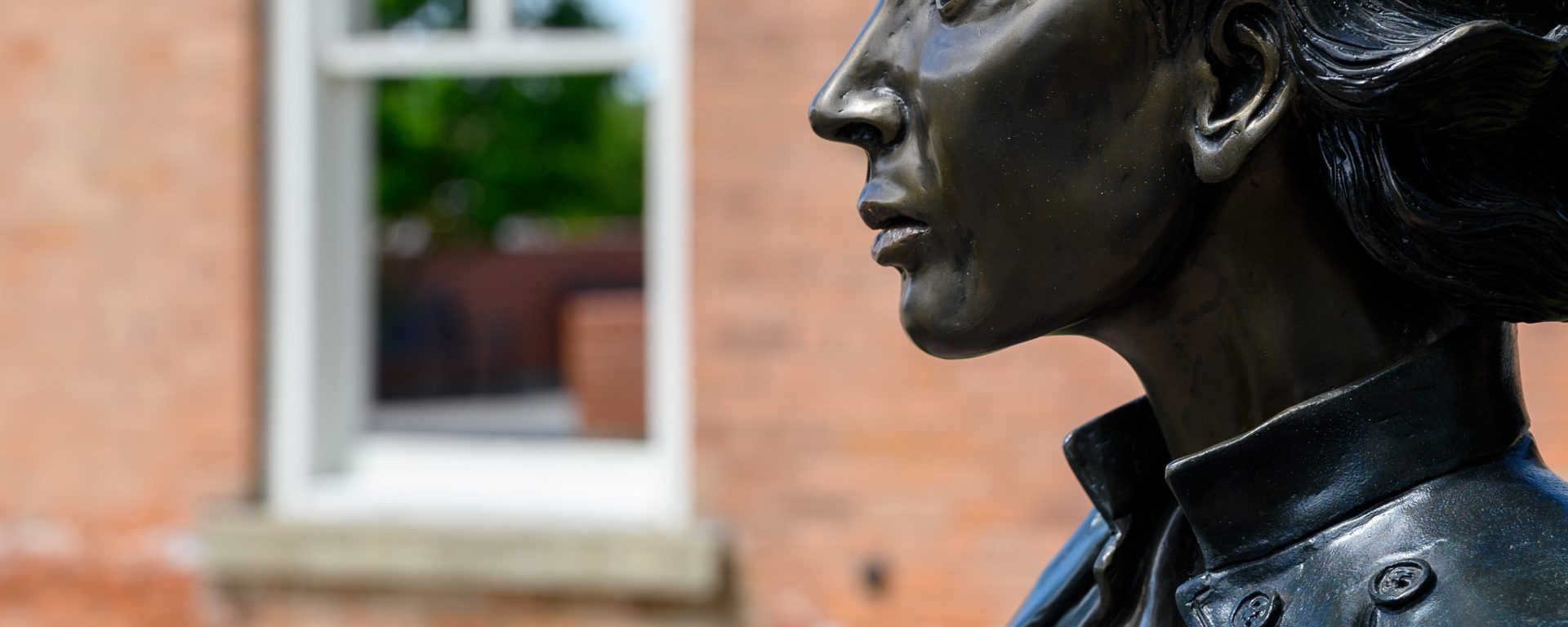Elizabeth Bell's favorite color is green, in any shade. She loves mac and cheese from scratch, working out, feel-good comedy flicks, and superhero cinema. If Elizabeth had one superpower, it would be to slow time so that she could get everything done that she wanted to in a day.
A pupil of patterns and persistence
When she was younger, Elizabeth was always drawn to positions centered on helping people. “When I was in second grade, I was hooked on health and science classes,” Elizabeth shared. “I think it's cool that bodies have normal functions, but that diseases present themselves the same way in everyone, and I like that there's a pattern in that.”
Later, Elizabeth took her passion for patterns in healthcare and earned her bachelor's degree in physiology and neurobiology.
With her diploma, Elizabeth became an EMT, but struggled when she had to bring patients to the hospital and then drive away to the next call, not knowing the patients' outcomes. “It's hard to see people in their worst moments,” Elizabeth shared. “As an EMT, you leave them, and you have no idea what happened.” As someone who considers herself a compassionate person, Elizabeth “wanted to be able to do more for her patients.” Elizabeth's abundance of ambulance care and EMT expertise sounded the sirens that awakened her curiosity for clinical work. With a clinical concentration in mind, Elizabeth was inspired to further her education.
Searching for a school that would fit her needs and bring her the most success, Elizabeth chose Goodwin's Accelerated BSN for its convenient program length and the program's favorable flexibility. With the ABSN option to complete core courses full-time in as few as 16 months, Goodwin became a more financially feasible option for Elizabeth as well.
Colorful conversations while caregiving
No longer driving patients to the emergency room as an EMT, Elizabeth is currently a Goodwin University student in her junior year, and she appreciates the precious time she now shares with patients. “The time we are given with patients is a good way to ease us into the medical field. We get to know them on a personal level,” Elizabeth stated. “You can't learn the art of nursing in a textbook. You can learn about the different techniques as far as how to listen to people, but it doesn't become an art until you have the chance to sit down, practice, and figure out your own way of doing it,” Elizabeth explained.
“While I was attending one of my clinical sites at an assisted living facility, I had a memorable moment with one of the elderly patients. She sat and talked to me about the women’s movement,” Elizabeth began. “It was interesting to hear what she thought it meant to be a strong woman. We talked about what it's like as a female to stand up for yourself in society. We talked about integrity, and she shined a positive light on what it takes to be a woman today.”
But not all of Elizabeth's patient experiences are as easy-going. “Once, I helped a woman with dementia who spoke Russian,” Elizabeth disclosed. “At the time, she thought another patient was her husband, and because I speak Russian too, it made it a little more personal for me, and I wasn't quite ready to handle that,” she admitted. “I stayed with the woman to help her finish her meal, but when I left, I ended up crying in my car.” When asked how she deals with sensitive situations like these, Elizabeth evoked a calm confidence: “Patients can tell you things that might hit home on a personal level,” she advised. “But you really just have to be there for them and remember that it's not about you. Being able to listen to someone without passing judgement is really important.” Later on, she confided in her instructor and classmates about the experience and acknowledged that the moment itself was all in good practice.
Framing for her future
A part of a 24-student class cohort, Elizabeth revealed that she and her classmates are “all in it together” and that in the ABSN program at Goodwin University, “it's nice to be a part of a family that really knows and supports each other.”
Elizabeth offered high praise for her professor, Bruce Hoffman, who “was really good at teaching the science of nursing, but honed in on the art of nursing.”
“He taught us how to be the kind nurse that you would want with you if you were going through a hard time or had something tragic happen. He had a lot of experience with clinical care and would always start the class with an inspirational discussion that we would tie back to nursing. We would leave the class feeling encouraged and eager to become great nurses.”
With high hopes of working in a hospital after graduating from Goodwin, Elizabeth advised all prospective ABSN students to “Stay driven. If it's something you really want, you'll make it work. Healthcare is a rewarding field. It will give you a purpose in life and it will make you feel satisfied that you're making a true difference.”
Learn more about Goodwin's Accelerated BSN program today!
Goodwin University is a nonprofit institution of higher education and is accredited by the New England Commission of Higher Education (NECHE), formerly known as the New England Association of Schools and Colleges (NEASC). Goodwin University was founded in 1999, with the goal of serving a diverse student population with career-focused degree programs that lead to strong employment outcomes.

